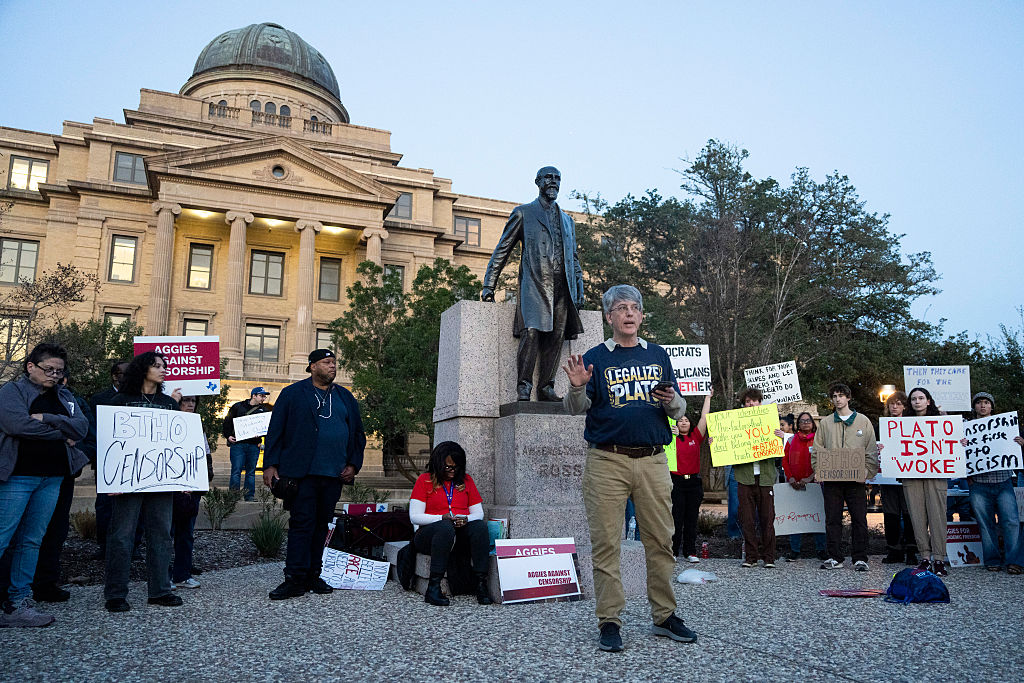First GOP Primaries: Winners and Losers

Mitt Romney vs Newt Gingrich vs Ron Paul vs Rick Satorum
Primary season kicked off with a bang in January. The number of Republican challengers looking to unseat President Obama in November was whittled down to half, over a grueling campaign course that took them from the frozen steppes of Iowa to the balmy Florida beaches to the Rockies. When the dust settled, three different candidates won the first three contests. And the tone of the political discourse should only get nastier as time goes on.
In Iowa, Mitt Romney appeared to have beaten the Evangelical favorite Rick Santorum by eight votes, only to lose the first caucus by a hair after votes were re-tallied. Michele Bachmann was the race’s first casualty. Romney handily won New Hampshire’s primary, tailed by a defiant Ron Paul, and Jon Huntsman’s campaign ground to a halt. Rick Perry dropped out of the race before Newt Gingrich trounced his rivals in South Carolina’s primary.
Heading into the January 31 primary in Florida—a swing state with 50 valuable delagates at stake—Romney surged ahead of Gingrich. The boost led to a decisive win for Romney, who solidified his status as the Republican candidate who could best beat Obama in the general election. Despite a torrent of searing ad spots from Gingrich, Romney gained 46 percent of the vote to Gingrich’s 32 percent. Trailing far behind, Santorum earned 13 percent and Paul 7 percent of the vote.
Moving into February, the candidates shifted to Nevada for the first caucus in the west. Owing in part to the state’s large Mormon population, pundits foresaw a Romney landslide—and they weren’t disappointed. Romney pummeled his opponents, earning more than 50 percent of the vote to Gingrich’s 21.1 percent.
In a stunning comeback, Santorum swept the February 7 caucuses in Minnesota and Colorado and the non-binding primary in Missouri. The results upended Romney’s cruise to the nomination and reinvigorated debate over Romney’s appeal with socially conservative voters, a constituency on which Santorum has a lock.
The takeaway from the month? Republican voters’ indecision could make for a very interesting contest for the nomination.
Leaving the WWE-style fighting out of the equation, what do the Republican rivals really stand for? Let’s look at the four frontrunners.
Mitt Romney: His economic platform consists of five main points: permanently extending the Bush-era tax cuts (while most households would benefit, the largest savings would go to the rich); cut the corporate tax rate from 35 to 25 percent (because the corporations, er, people are suffering); eliminate income tax on long-term capital gains and dividends for families earning $200,000 or less; repeal taxes imposed by the Affordable Care Act; and repealing the estate tax. In other words, welcome to Bush-Cheney 2012. On the social issues front, Romney stresses his opposition to abortion, same-sex marriage and illegal immigration but with less fire-and-brimstone than his rivals. So far, Romney has won three states: New Hampshire, Florida and Nevada.
Newt Gingrich: The political coup with which Gingrich is most widely identified is the Contract With America from 1994, a socio-economic agenda supported by House Republicans that hobbled the implementation of Bill Clinton’s more liberal policies. Also, he’s pro-life. He’s in favor of children starting work at an earlier age. He opposes affordable health care for most Americans. And even though his half-sister, Candace Gingrich, is an outspoken LGBT advocate, Newt opposes same-sex marriage. Gingrich roared back from early defeats to decisively win South Carolina, but his performances afterwards may have put the writing on the wall.
Ron Paul: The sole libertarian in the Republican race, Paul opined in 2007 that “the proper role for government in America is to provide national defense, a court system for civil disputes, a criminal justice system for acts of force and fraud, and little else.” In an interview with Christianity Today last year, Paul said the Fed shouldn’t be in the business of marriage at all. “Biblically and historically, the government was very uninvolved in marriage. I like that. I don’t know why we should register our marriage to the federal government,” he said. At the same time, he admitted he believed marriage should be reserved for heterosexual couples. His campaign is courting Mormons in Western swing states, hoping to sway them with a message of strict adherence to the Constitution. Paul’s best finishes were second place in New Hampshire and Minnesota.
Rick Santorum: Oh, Rick. What shocking thing can we say about Santorum that you haven’t already heard? The former Senator from Pennsylvania has a terrible track record with LGBT voters, beginning with his infamous comparison between same-sex marriage and bestiality in a 2003 Associated Press interview. On the campaign trail, Santorum has used every whistle-stop to denigrate the integrity of gay and lesbian families, saying that such unions will undermine the stability of American society. He is predictably against legal abortion and contraception as well as the Affordable Care Act. During the Fox News/Google-sponsored Republican debate last September, Santorum called the repeal of “Don’t Ask, Don’t Tell” “tragic.” Santorum has shocked much of the pundit class by winning four state races (Iowa, Minnesota, Missouri and Colorado)—one more than alleged frontrunner Mitt Romney.












